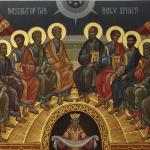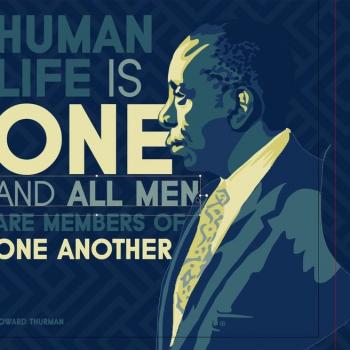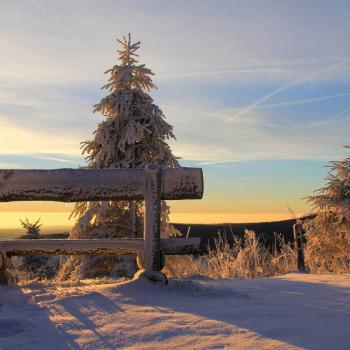The Baptism of Jesus – January 7, 2024
Genesis 1:1-5
Psalm 29
Acts 19:1-7
Mark 1:4-11
Today, the focus is water. Water as physical but more importantly spiritual. Water is at the heart of life. We can’s without physical or spiritual hydration. All life is permeated by water. Water cleanses and refreshes. Water is at the heart of spiritual nourishment and transformation. Water reflects divine wisdom in body, mind, and spirit, and is a medium of salvation.
We need hydration for our physical bodies and our thirsty spirits need refreshment. We are creatures of water: 60-70% of our bodies is composed of water and 70% of the earth is water. Warer, like air and food, is necessary to sustain life and civilization. Yet, the waters of the earth are in peril, and with them, the whole planet due to global climate change, rising waters, and the death of tiny organisms necessary for life on earth. National defense experts recognize the possibility that the next great wars will be about water due to the human impact on climate change. Already, lack of water is a major factor in migration and civil unrest. Water matters: we need to hydrate ourselves spiritually as well as physically, refreshing ourselves daily in the waters of baptism and remembering our baptisms as a talisman against fear, anxiety, and cowardice in such a time as this.
Today’s scriptures celebrate the waters of grace and healing – the waters of creation and transformation – that change our lives and the world. We rejoice in the waters of the womb of creation, incarnate in our mothers and in Mother Earth. As Masaru Emoto has theorized, water is the blueprint of reality, far from inert but sharing in the vibrations of divine wisdom. Water refreshes, heals, and transforms. It reflects our prayers and emotions and can be energized by spiritual practices. God moves within the waters of the earth and the waters of our flesh.
In the reading from Mark’s Gospel, Jesus goes to John the Baptist to be baptized. Jesus’ baptism becomes the paradigm for our baptismal stories. It is my belief that John the Baptist and Jesus were spiritual friends, who embodied the intimacy of their respective mothers’ (Elizabeth and Mary) relationship. Recall that Mary visited Elizabeth immediately after the visitation from Gabriel and the revelation that she would give birth to God’s messenger to humankind. Elizabeth perceived her unborn son John leaping for joy. A deep spiritual connection existed that found its fulfillment at the Jordan River.
Three decades after their original prenatal meeting, John responded to God’s call to be way maker for God’s messenger. He preached a message of repentance and transformation, calling people to change direction in preparation for the coming of God’s new age. We need figures like John the Baptist today, who call out our leaders, challenge our apathy, and remind us of the relationship between personal spirituality and civic duty. Perhaps they are already here – perhaps John’s voice echoes in your life – but we don’t listen. It would call us to change too radically and push us out of our comfort zones and out into the streets and soup kitchens.
The baptismal encounter of John and Jesus inspires imaginative questions for preacher and congregation alike. Was John surprised to see Jesus? Was the descent of the dove astounding to the wilderness preacher? Was it astounding to Jesus, in its apparent call for him to claim his vocation as God’s Beloved Messenger? Mark asserts that God’s spirit descends on Jesus, infusing him with power and insight for the journey ahead. Perhaps John’s baptism of Jesus created a “thin place,” as Celtic spiritual guides claim, enabling God to be more active in Jesus’ life. Perhaps the Spirit entered through Jesus’ crown chakra (top of the head) and permeated his spirit and the cells of his body, raising his spiritual vibrational frequency! God’s presence in the universe is not homogenous and uniform but contextual and intimate. The shape and intensity of God’s presence and ability to work in our lives is dependent, to some extent, on our openness to God, our spiritual practices, and communities of faith that infuse us with loving energy. Jesus’ baptism, like our own, may mark a life passage into new dimensions of reality, self-understanding, vision, and power.
Historically baptism has been described as a sacrament, a visible sign of God’s grace, making sacred or holy the transitions of our lives. In a world in which God’s Spirit is global, sacraments, such as baptism, are not supernatural interruptions of causal relationships, nor are they necessary for salvation (or to liberate us from hell), they make sacred the ordinary, domestic, and everyday events of our lives. Nor are sacraments the property of the church. Don’t fence the sacraments and don’t bar the Spirit!
Remembering our baptisms, even if we were infants, provides a portal through which, in the spirit of Emoto, divine vibrations can energize and transform our lives. Baptism is an act of inclusion as well as transformation. While baptism can occur as a result of a mature decision, baptism can also occur solely as an act of hospitality and welcome, and inclusion of the least and most vulnerable of these into God’s community and our own. Regardless of age, baptism is an act of grace. We don’t earn it; we receive it because God loves us and we put ourselves in the position to receive it. Our baptism confirms the global, unmerited grace and revelation of God, which applies to the baptized and unbaptized. We remember baptism as a sign of our “original wholeness” (Thomas Merton) in the midst of challenging experiences that fill us with fear and doubt. Baptism reminds us that if God is for us, who can be against us?
The first words of Genesis describe poetically the world-creating movements of divine wisdom. They are theological and spiritual – cosmological – with only a hint of science. (Those who look for exact dates and timetables for creation are missing the point of this account of the work of Divine Wisdom.) God’s light brings the heavens and earth and invests the waters of the earth with fecundity. God creates within the womb of chaos to bring forth the order necessary for creativity and evolution. The Genesis story is not science; still, the story begs the questions, “Was there a first moment of creation? Or, has God always worked with materials, pregnant with possibility despite their formlessness?” Christians don’t need to worry about the timetables or the how’s of creation, but the divine intent – the goodness of life and our role as companions in the great creation story. God joins innovation and order in the creation of the universe, and God is still seeking novelty and transformation amid the orderly movements of the universe and our planet. Seed time and harvest, and yet God’s mercies are new every morning.
Psalm 29 describes God’s creative voice. Divine vibrations bring forth the universe, part and whole. God’s sovereignty is generous and creative. God’s power is characterized by beauty-making. The divine artist creates by wise and imaginative artistry, bringing forth a universe, bursting forth with diversity. God sings and speaks life into being, inviting us to discern our own particular life-melody.
Acts 19 describes the interplay of water and spirit. Baptism creates an avenue for God’s ubiquitous Spirit to break into our lives in remarkable ways. Spirit belongs in our world, but our sin prevents us from experiencing her power and guidance. God’s Spirit, speaking in us and interceding for us in sighs too deep for words, can burst forth – despite our sin and lack of awareness – in glossolalia, or speaking in tongues, that connects us with divine wisdom and confirms our confidence in God’s providence in our lives. Today’s tongue speakers may not be speaking in strange languages, found only in Pentecostal churches and contemplative prayer, but in the “strange language” of justice-seeking, simple-living, and ecological care in a world hell-bent on destruction of vulnerable humans and the vulnerable earth. Our “strange tongue” today is to share in telling out the good news of creation and challenging ourselves and our leaders to be agents of “tikkun olam,” repairing or healing the world.
Today, let us rejoice in the life-giving waters of God, quenching our thirst, refreshing our spirits, and cleansing us of all sin and giving us power to share God’s Good News. And let us be God’s partners in protecting the baptismal integrity of all creation, from womb to planet.
+++
Rev. Bruce Epperly Ph.D. has served as a professor, seminary administrator, university chaplain, and congregational pastor at Georgetown University, Wesley Theological Seminary, Lancaster Theological Seminary, and South Congregational Church on Cape Cod. “Retired,” he continues to teach in the Doctoral of Ministry program at Wesley Theological Seminary, give seminars, write, and rejoice in grandparenting and marriage with Rev. Dr. Kate Epperly. He is the author of over eighty books, “The Elephant is Running: Process and Open and Relational Theology and Religious Pluralism,” “Jesus: Mystic, Healer, and Prophet,” “Walking with Francis of Assisi: From Privilege to Activism,” “Simplicity, Spirituality, and Service: The Eternal Wisdom of Francis, Clare, and Bonaventure,” and “Taking a Walk with Whitehead: Meditations with Process-Relational Theology.”












